Handy Phrases to Learn Ahead Of Your First Trip To Japan
Your flights to Japan are coming up shortly and you're cramming in all the Duolingo and Dr. Moku study you can ahead of your trip?
Fooooorrrrrrrrrrrggggeeetttttttt about it. Use this blog instead!
We put together a handy list to make sure you're all prepped once you hit the town, so if your trip is nearing sooner and sooner, brush up on these handy Japanese phrases!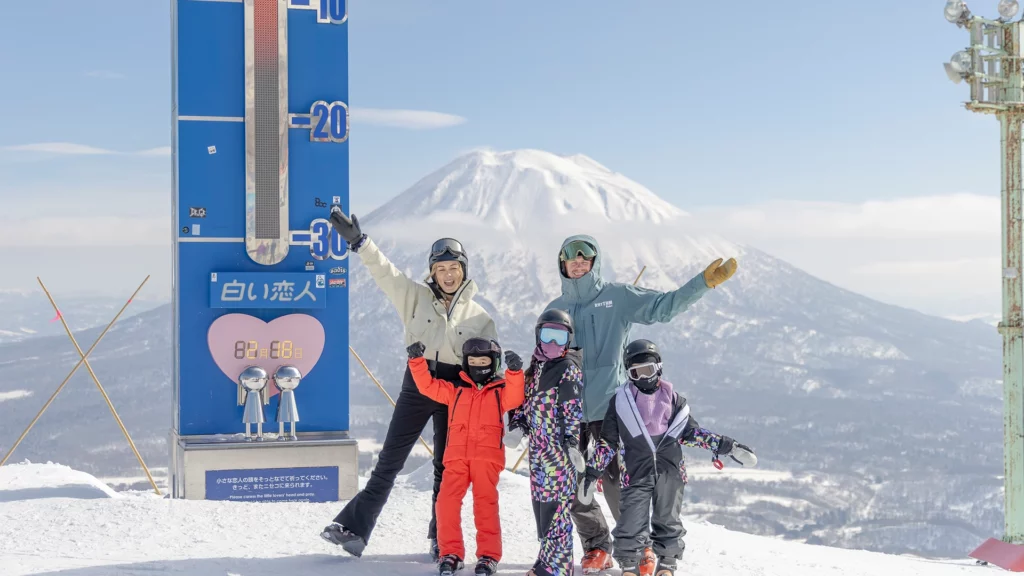
Ohayo Gozaimasu - Good morning!
Konbanwa - ‘Good evening’, normally said as a greeting.
Mata Ne - Goodbye/See you soon. While ‘sayonara’ is also a term meaning ‘goodbye’ and is much more formal, normally alluding to a sense of permanence, like, you will never, ever see that person again.
Arigato Gozaimasu - Thank you, very much!
Sumimasen - You’ll hear this one A LOT. In Japan ‘sumiasen’ means ‘excuse me’ and is very common.
Gomenasai - A more formal way to say ‘I’m sorry.’
Wakarimasen - 'I don’t understand'.
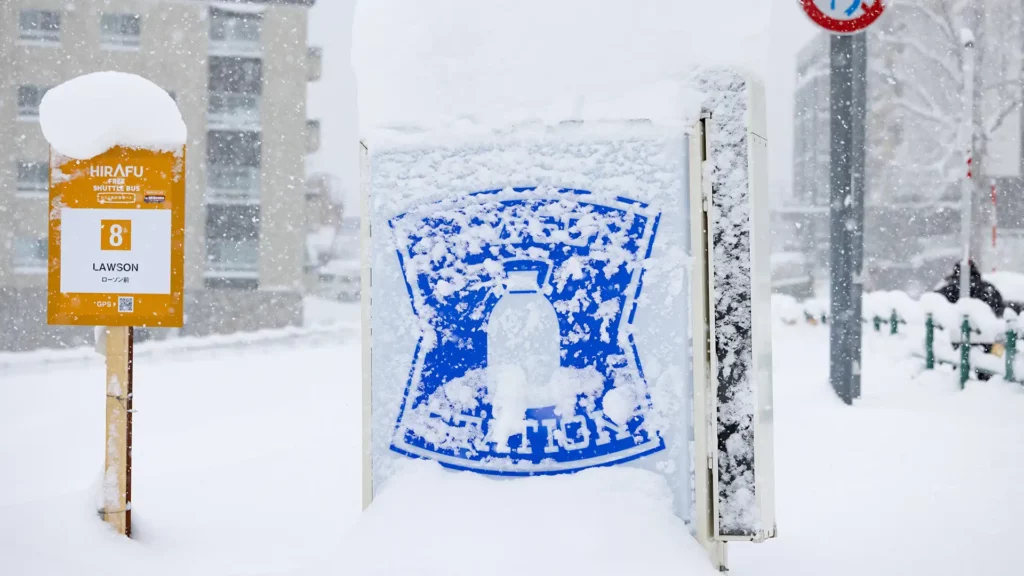
Conbini/Konbini: As the Japanese word for ‘convenience store’, this is one that you’ll hear 15 times a day when your friend keeps saying “hey man, just going to duck to the konbini quickly”
Daijabou-desu: “I’m OK!” - and essential phrase to know before park laps.
Nihongo - The Japanese word for ‘Japanese’.
Oishii - ‘Delicious’ - trust us, once you have this one in your back pocket, you’ll be dishing it out like you’re a judge on Masterchef. Especially at an izakaya where you’re trying a bunch of small dishes, all of which will without a doubt be ‘oishii’.
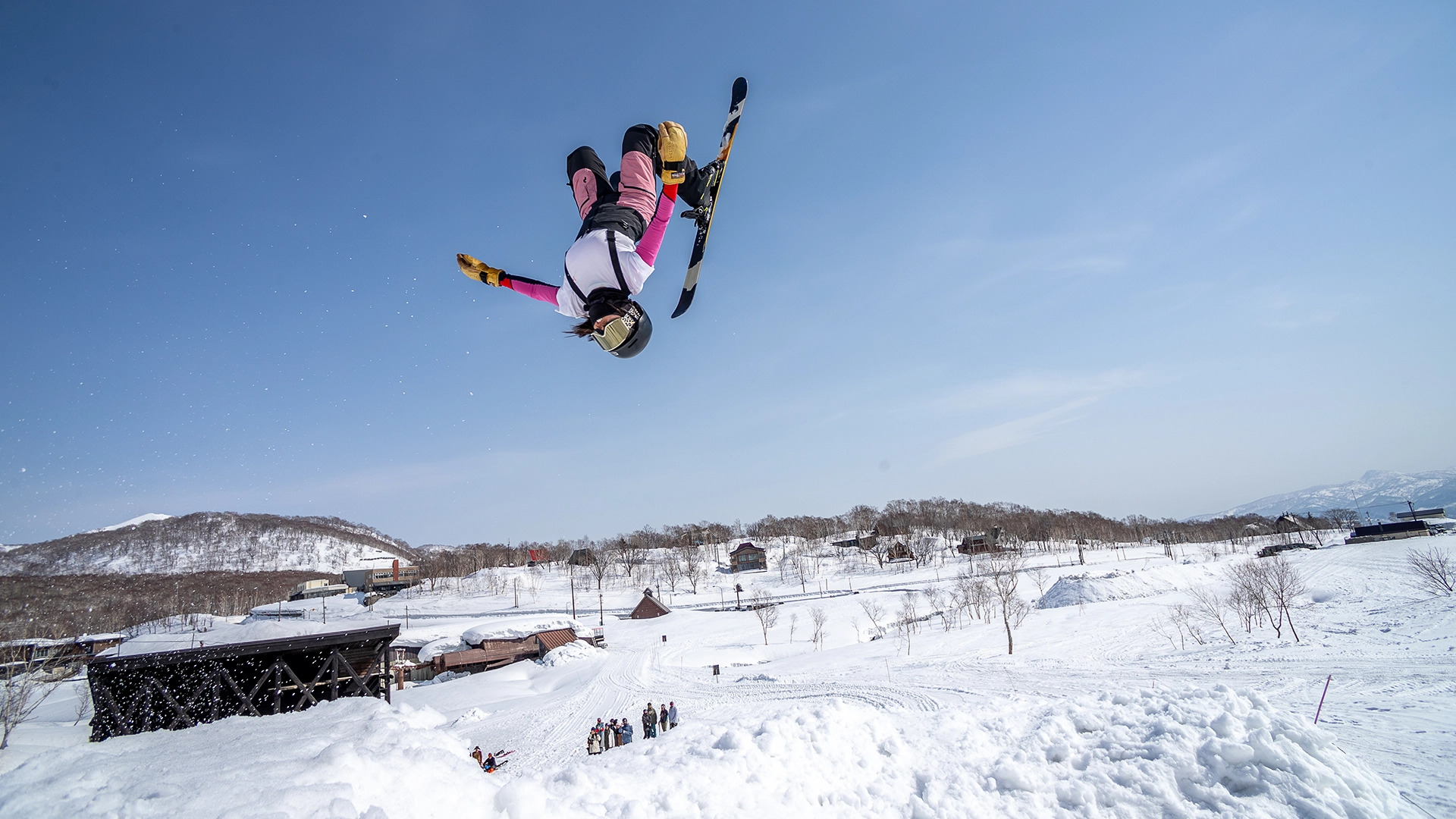
Sugoi - If you’re someone who refers to everything as ‘sweet’, ‘sugoi’ will be your new favourite Japanese term.
Yabai - If you want to come across as a cool dude in casual park conversations, ‘yabai’ will have you covered, loosely translating to ‘sick.’ But in a ‘that’s so sick’ kind of way. If you go to the doctor they will not diagnose you as ‘sick.’
Karaage - Japan’s super famous ‘fried chicken.’ There’s a high chance you will eat A LOT of it.
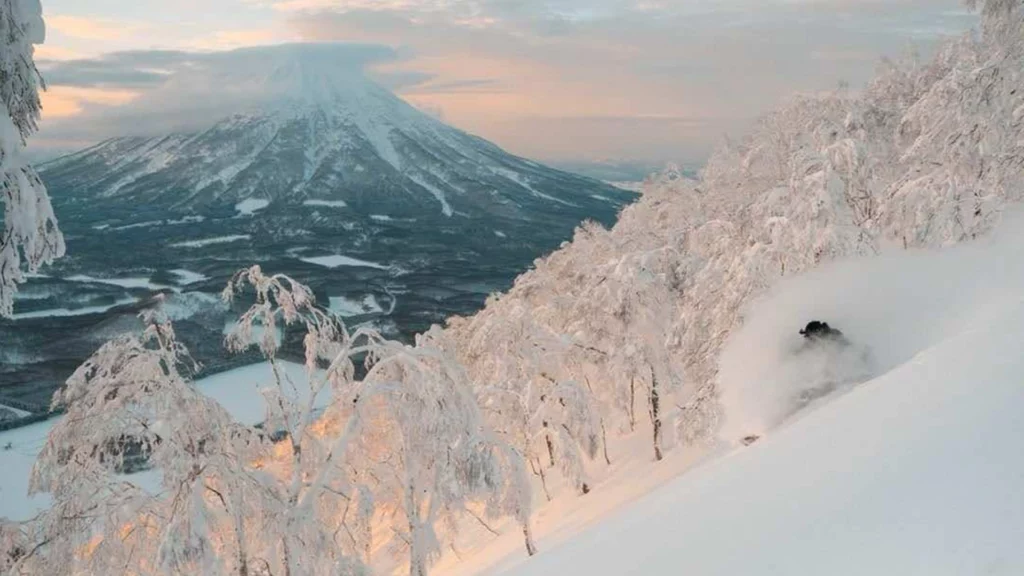
Konayuki - The reason we are all here, ‘powder snow!’
Yuki - ‘Snow’
Hai - You will definitely need this one! ‘Hai’ translates to ‘yes.’
Etto - ‘Etto’ is the Japanese phrase for ‘and’, so when you're in a konbini with a huge line behind you, you can order everything in one with a simple ‘etto.’
Watashi-Wa [--] Desu - Hint: Eminem was awarded a Grammy in 2000 for a song that is titled this phrase… Not picking up on the clues? ‘Watashi-Wa’ means ‘My Name Is.’
Mata Ikimasu - Think Terminator’s iconic catchphrase. ‘Mata ikimasu’ translates to ‘I’ll Be Back’. No, that does not mean you need to pronounce it with Arnold Schwarzenegger's famous accent.
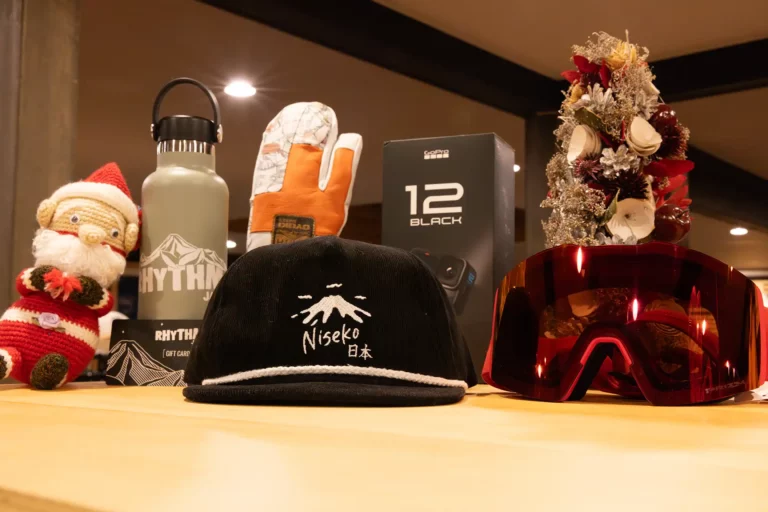
Omiyage - When you get home and unpack your bag, the omiyage (souvenir) will be the first thing you take out for the family!‘
Ryokan - A traditional Japanese inn, normally featuring futons, tatami mats and an onsen.
Saikou - This super handy blog is ‘saiko’ (the best).
Arimasu Ka? - Can’t spot what you’re looking for at the supermarket? Ask a worker ‘Arimasu ka (item)? It means ‘do you have?’
Gochisousama Deshita - Now we’re turning into pro’s at Japanese with this respectful saying translating to ‘thanks for the meal’. Mix it in with ‘oishii’ and ‘mata ikimasu’ and you’ve just said your first Japanese sentence ‘That was delicious! Thank you for the meal, I will be back.’

Wakarimasen - Busting out all these phrases but finding that the conversation is getting more advanced than you practiced for? ‘Wakarmisaen’ means ‘I don’t know.’
O-da Onegaishimasu - “Can I please order?”
Ganbatte - Ganbatte translates to “do your best!” and is normally used in a same sense as “Let's get it!” in English.
Onegaishimasu/Kudasai - Both are interchangeable terms for ‘please’.
Tamago - Egg! Head to the konbini and score yourself a tamago sando!
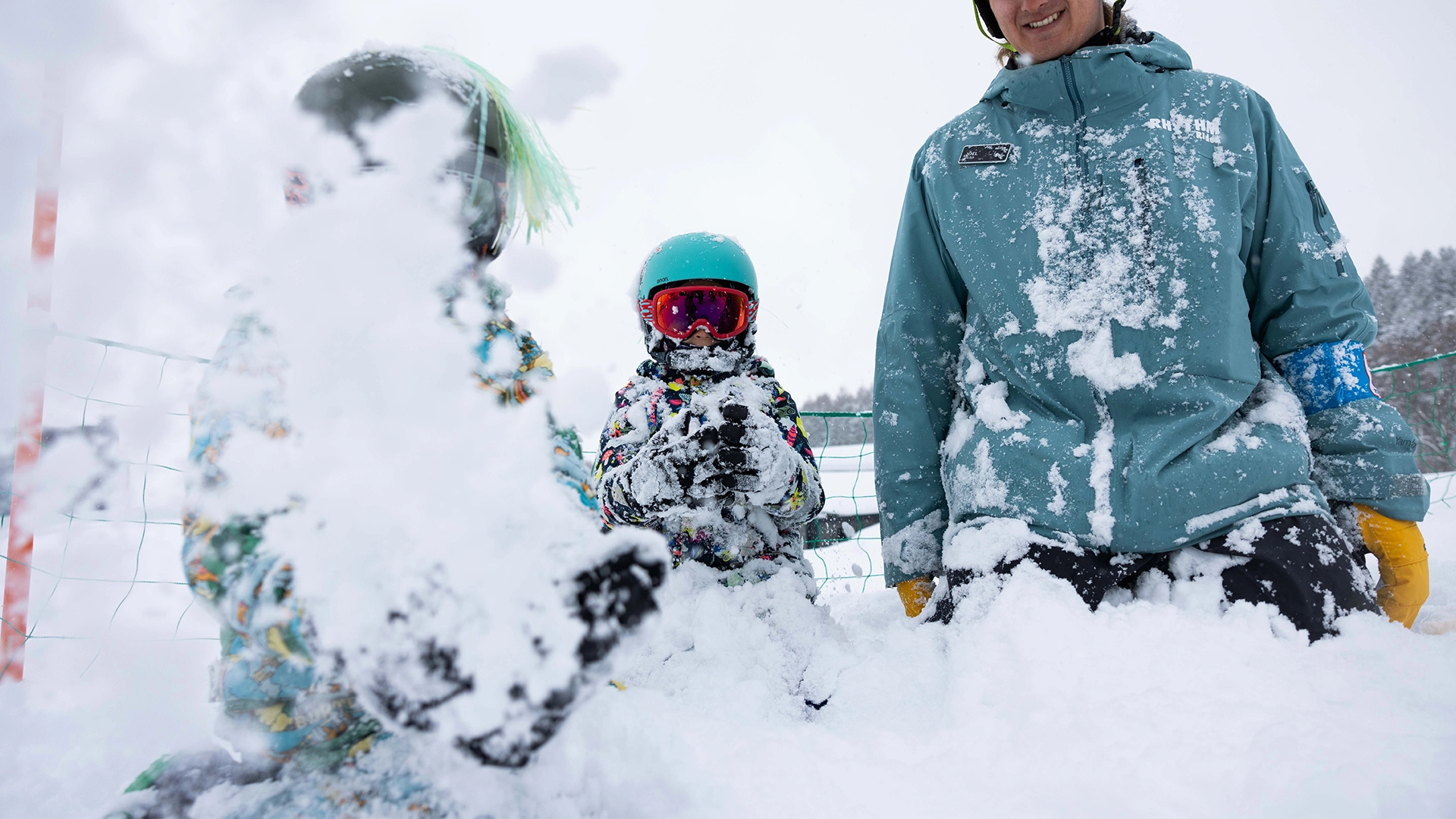
San, chan/kun - Both ‘san’ and ‘chan’ are terms of respect and politeness used when speaking to someone. ‘San’ is normally used for adults, loosely translating to ‘Mr’ or ‘Mrs’, whereas ‘chan’ is traditionally used for children, ‘chan’ for girls and ‘kun’ for boys and is used to show affection.
Ikura Desu Ka? - Yennies starting to run a bit low? Use ‘Ikura desu ka?’ to find out the price of something before purchasing - it means 'how much is this?'
Ka-do Tukaemasuka - ‘Do you accept card?’ Typically Japan is a cash-orientated society, but over recent years a lot of local businesses have started implementing card readers in stores, but if you’re ever unsure this handy phrase will have you sorted.
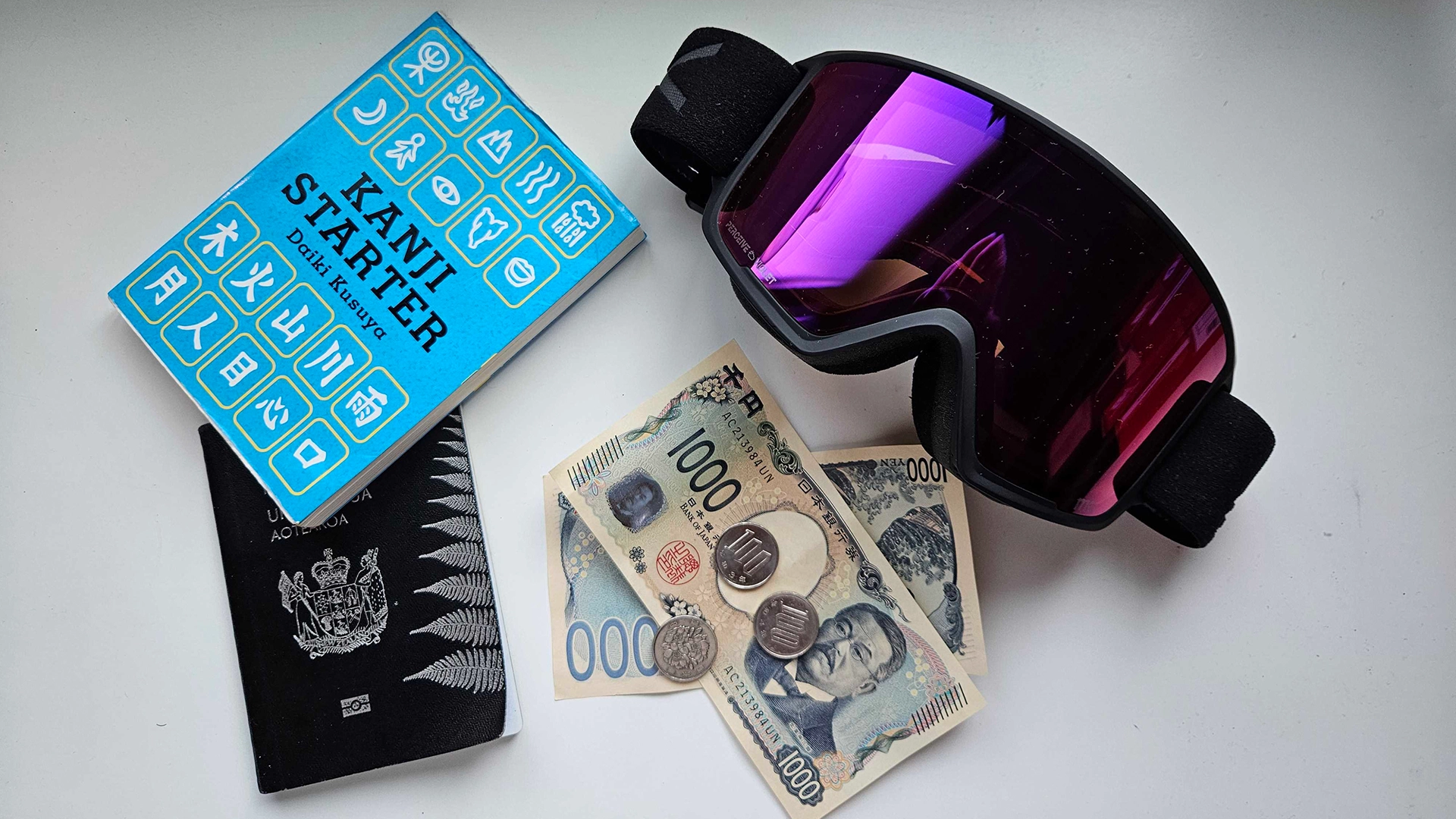
Genkin - ‘Cash’ is king, always.
Genkan - A 'front entranceway' where you take off your shoes before entering the building.
Mizu - The Duolingo classic phrase that we all know and love, meaning ‘water.’
Ocha - Another common staple found in all beginner Japanese word books, ‘otcha’ is ‘green tea.’
Gohan - ‘Rice’
Yakiniku - If you see a yaki-niku restaurant, check it out! Yakiniku means ‘cooked meat’ and are some of the best BBQ restaurants around town!
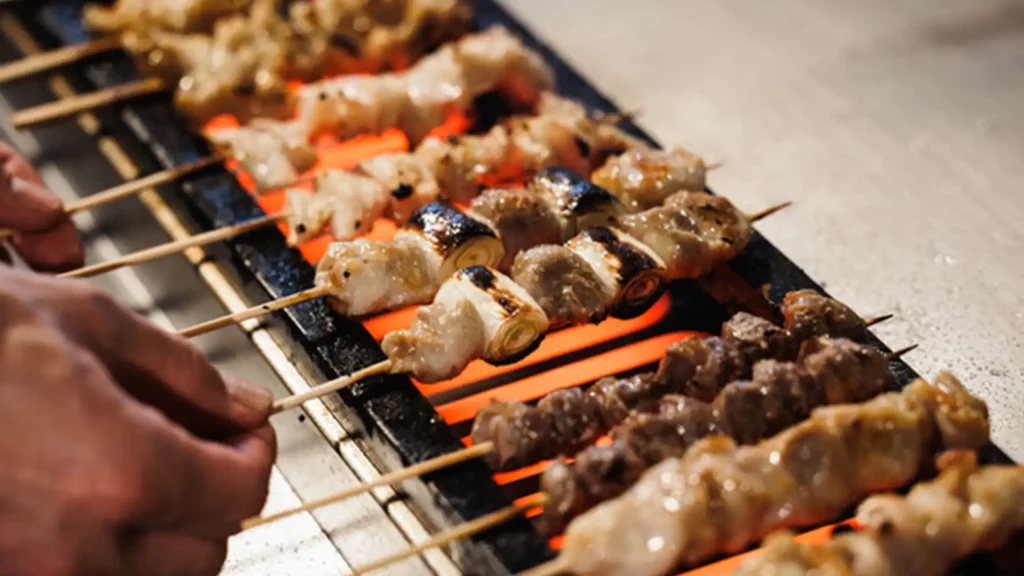
Yakitori - You may be picking up a theme here, and if you’ve put two and two together you may have noticed that ‘yaki’ translates to cooked. In this instance ‘yakitori’ translates to cooked chicken.
Yopparai - ‘Drunk’, ‘chotto yopparai’ meaning ‘a little drunk’, ‘meccha yopporai’ is ‘very drunk.’
Nomiho-di - This is what you’ll need to get ‘meccha yopporai’ as it translates to ‘all you can drink’ and is quite commonly offered at izakaya’s and karaoke.
Suberi Ikou - “Let’s go shred” in Japanese.
Tabehodai - All you can eat!
Tori - Chicken
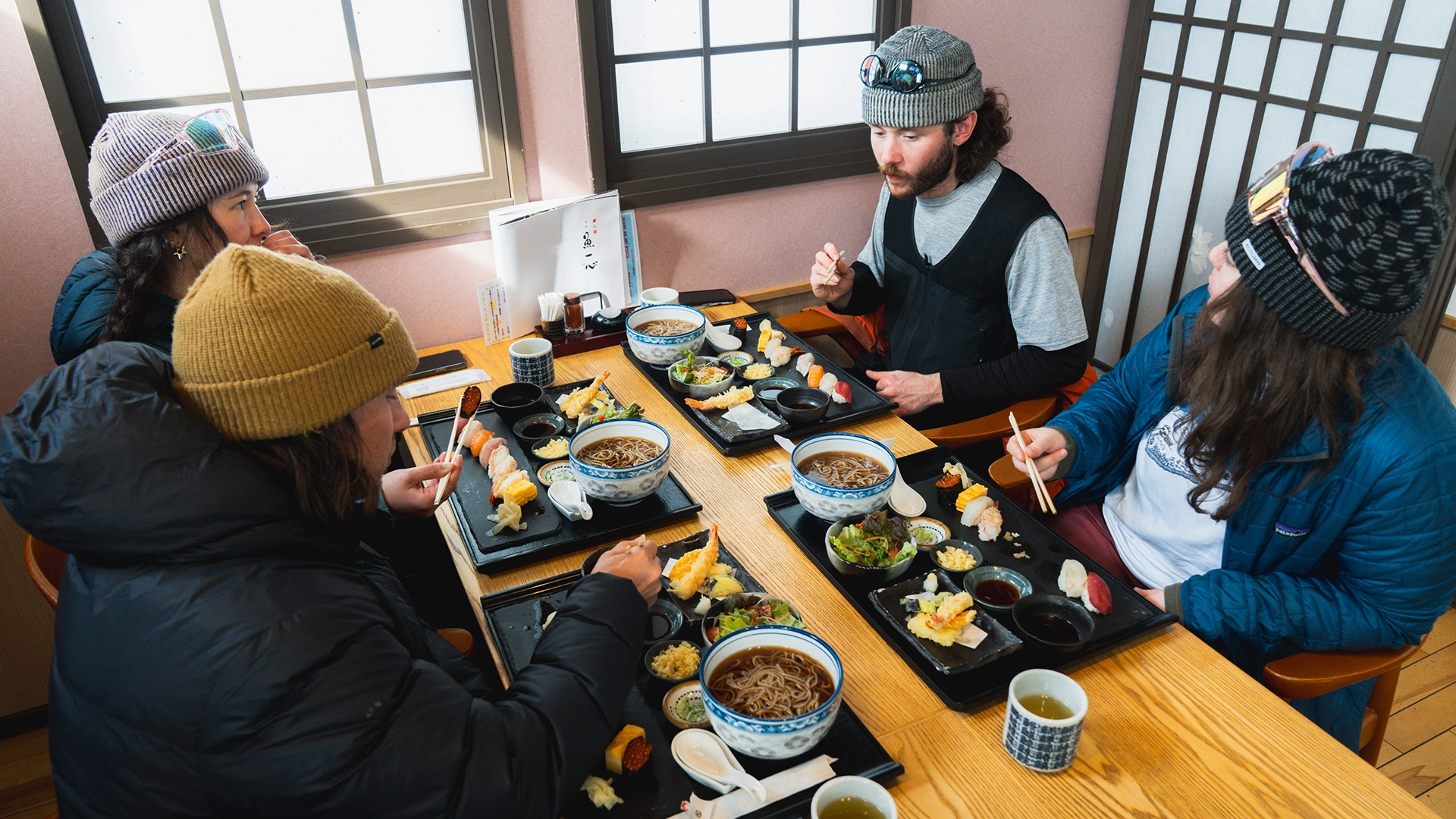
Niku - Meat
Okaikei kudasai - Finished eating? ‘Okaikei kudasai’ is ‘can I have a bill?’
Samui - Japanese term for ‘cold’.
Biiru Kudasai - 'Can I please have a beer?'
Mata Yama De: 'See you again on the mountain' in Japanese.
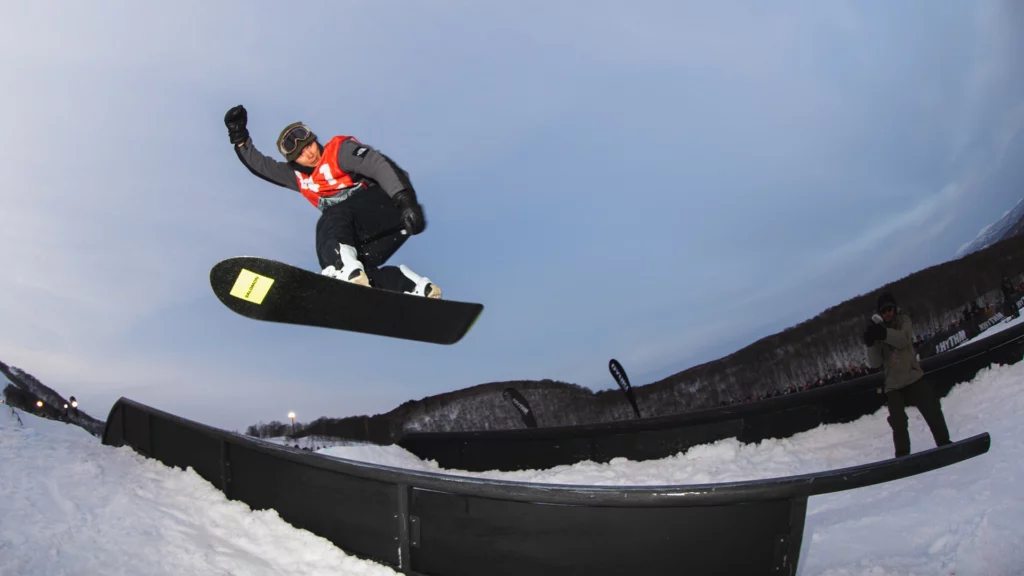
Rizumurērujamu o tanoshiminishiteimasu. Subarashī ibento ni naru hazudesu - 'I am looking forward to the Rhythm Rail Jam, it’s meant to be a great event.' - Correct.
Got your JP lingo dialled? Now, all you need is your rentals sorted and you are ready to hit up Niseko, Hakuba or Furano this winter! If you haven't booked, get in quick and score yourself some epic pre-book perks (like cheaper prices)...
